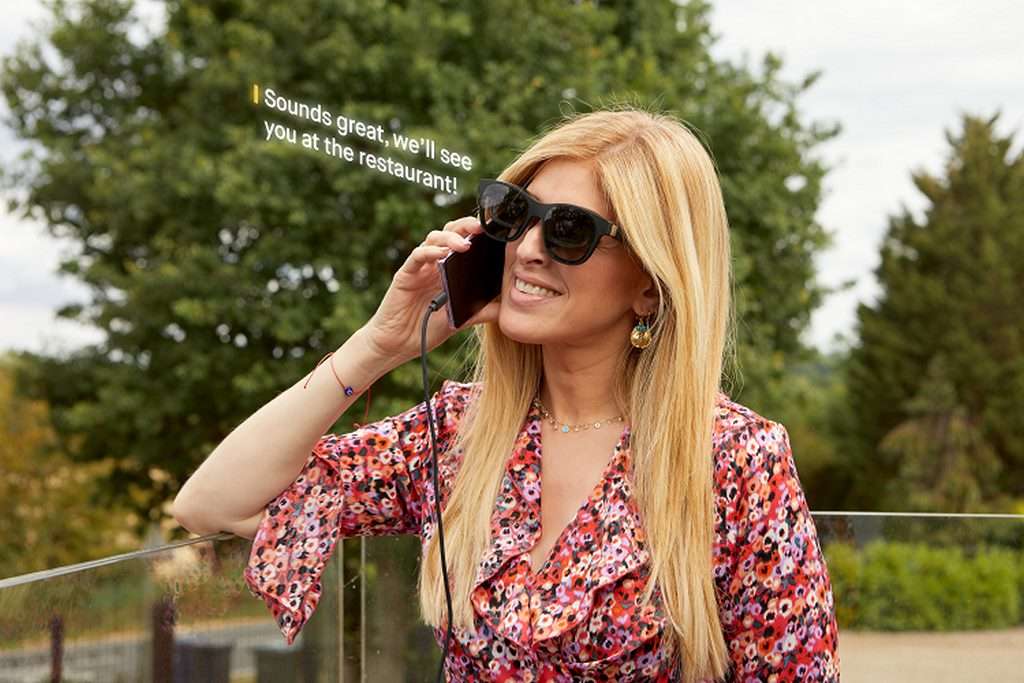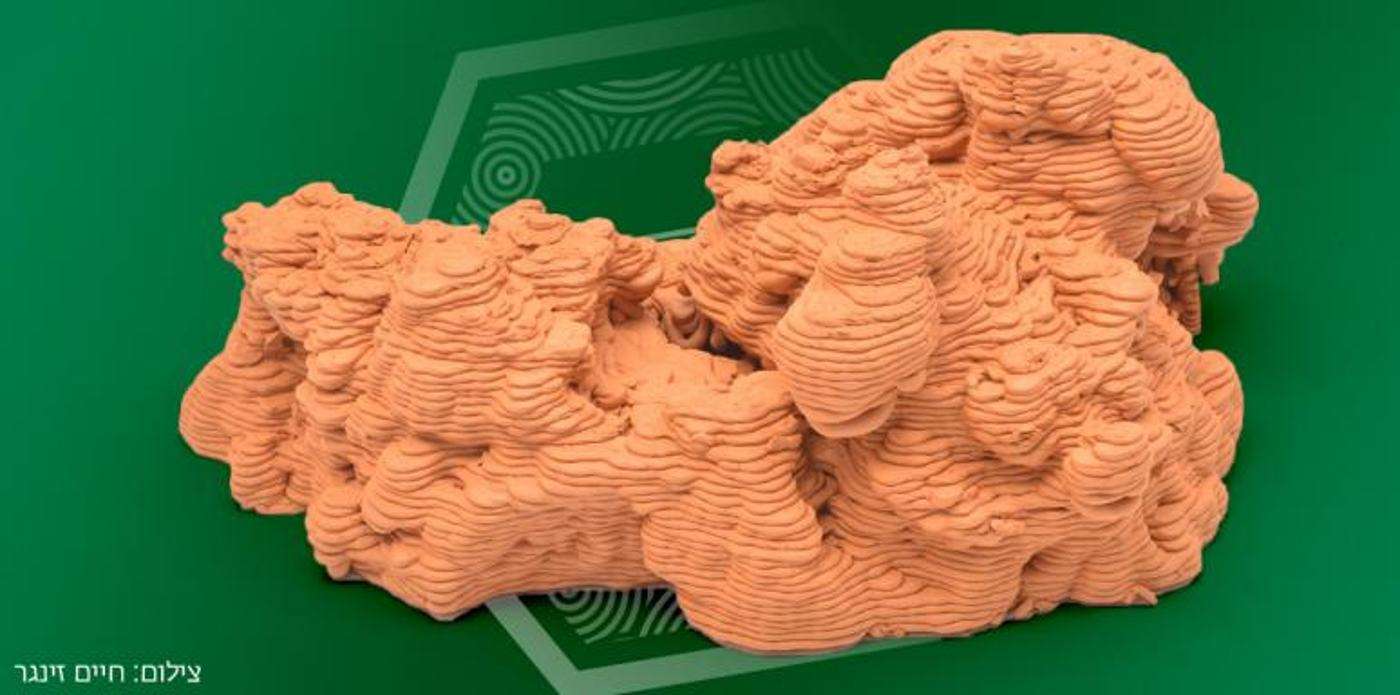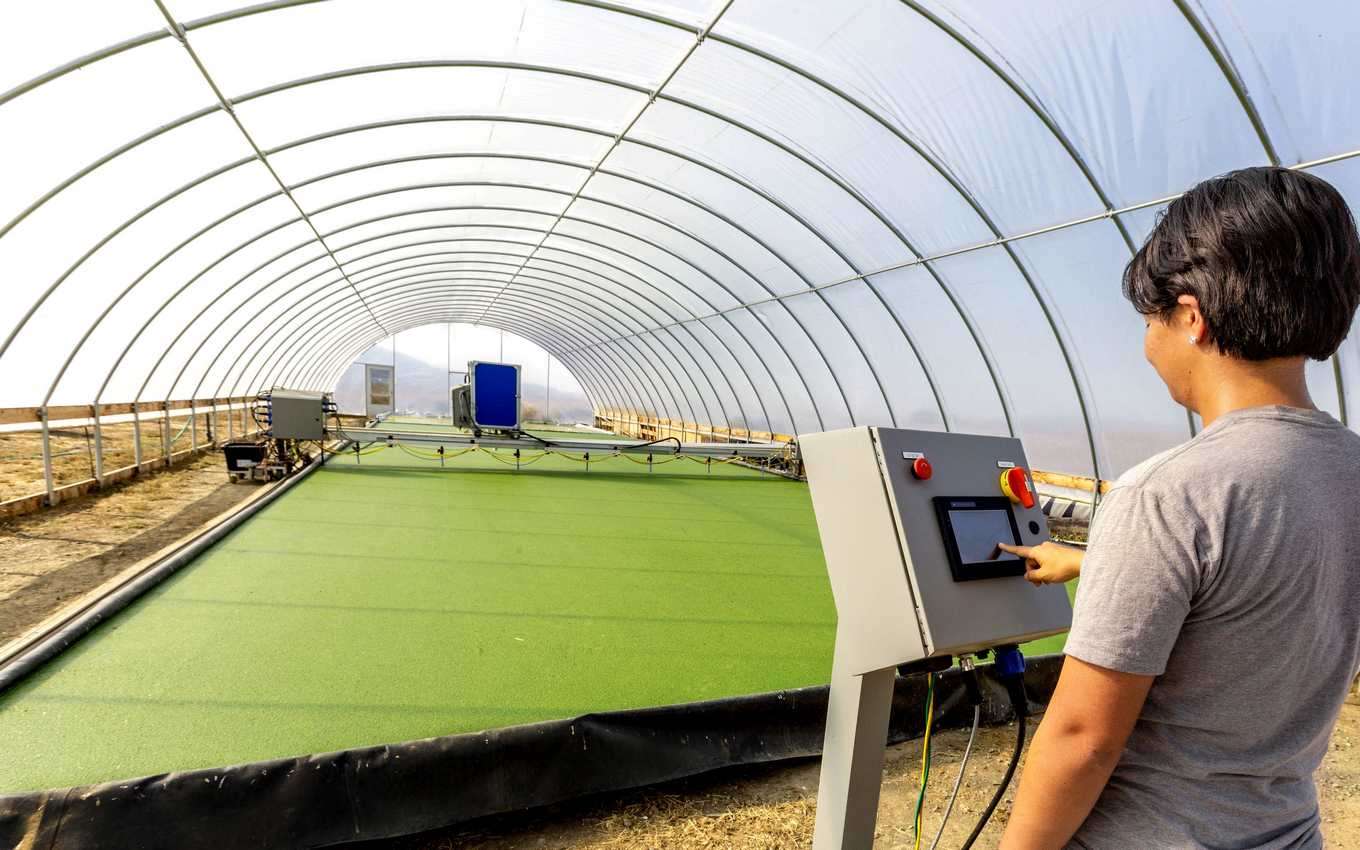New Glasses Allow Deaf People to 'See' Conversations by Turning Audio into Subtitles
What seem like an ordinary pair of glasses are actually using Amazon Alexa software to turn incoming audio into closed captioning

What seem like an ordinary pair of glasses are actually using Amazon Alexa software to turn incoming audio into closed captioning

Run on renewable energy, the project is estimated to be able to take 40% of all freight-bearing traffic off the roadways in a sustainable way.

An innovation interface from Bar-Ilan tailors 3D-printed reefs to their marine environment and may curb reef devastation.

It took a century for Scotland to realize the recreational resource of their old coal-carrying canal network, which is now the nation's joy.

The crops are grown in special greenhouses, and double in size every 3 years. Best of all, the cows come running to eat it.
Samsung managed to achieve this with an increase in computing speed by between 16-23%, heralding another big device revolution.
Storing heat in a giant "sand battery" may be the key feature to northern countries' energy needs, as one goes online in Finland.
Gravity Industries has been training paramedics to use their Jet Suit for the remote emergencies of the Great North Air Ambulance Service.
At ten times more productive than similar carbon capture methods, Tata will reduce its enterprise-wide emissions by 10%.
MIT researchers have filed for patents on their inexpensive little refrigerators that require no power.
Scientists are developing artificial photosynthesis to help make food production more energy-efficient here on Earth, and one day possibly on Mars.
A tech start-up has developed a product that allows safe drinking water to be refined from vapour in the air.
A new type of plastic made directly from organic plant waste has been created by scientists at the Swiss Federal Institute of Technology.
The WasteShark, like the whale shark it's named for, gobbles up plastic trash in a silent, safe, easy, effective, and affordable way.
The lionfish can decimate ecosystems, but also make a beautiful leather product if tanned and processed correctly.
The product can trap around 16 credit cards worth of microplastics from being consumed in a person's drinking water.
The mussels add a translucence to the tiles, which has never been achieved before using biological materials.
Fog nets in southern morocco by the company Aquilonis are providing 18 liters of drinking water per day, for 1600 people.
Scalable to any river size, the River Cleanup buoys can filter oil or trash, and have no impact on river navigability or habitability.
The ear is 100% alive, made from the patients' cells and collagen, and in most cases restores hearing as well as aesthetic form.
Recent Stories
A Heartfelt Reminder to Appreciate the Ones We Love
Cherish the Woman Who Stands by You
Breaking Generational Cycles of Pain
Living by Your Own Values, Not Others' Approval
When Life Brings Rain, It’s Okay to Rest
Before You Judge Someone's Life, Take a Moment to Walk in Their Shoes.
A Friend Who Spreads Gossip is Not a True Friend at All
The Value of Human Connection Over Digital Convenience
The Quiet Kind of Love
One Day, Your Mom Won’t Call You Anymore
I’ve reached a point in my life...
Happiness is a mindset, a conscious choice we make every day